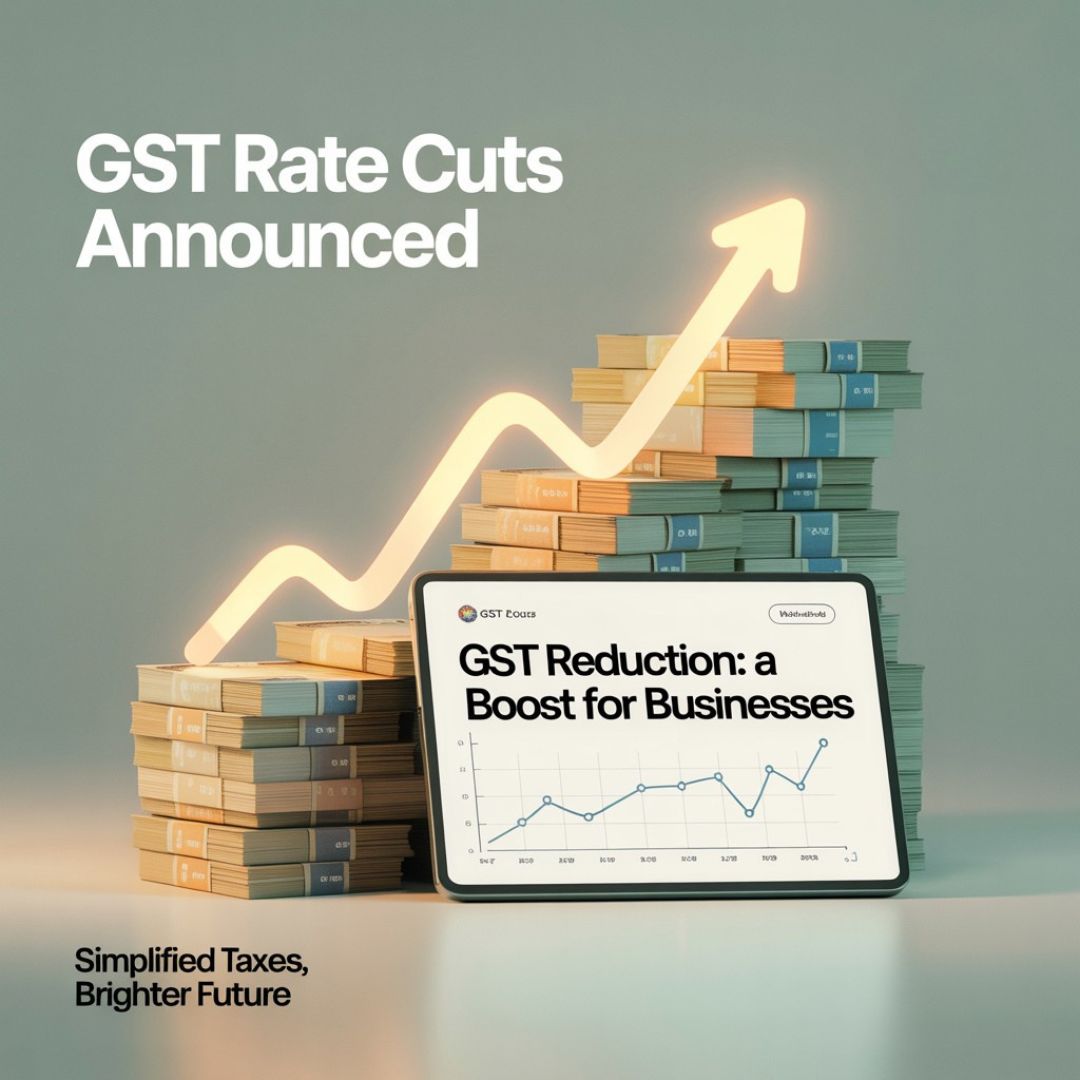- About us
- Outsourcing
- Strategic Finance
- Compliance & Tax
- Automation
- Group Companies
- Resources
- Career

Date: 4 September 2025
The Goods and Services Tax (GST) Council has finalized one of the most significant reforms since GST’s introduction in 2017. At its meeting on September 3–4, the Council approved a simplified GST structure, reducing the number of tax slabs and providing relief across multiple sectors. The changes will take effect from September 22, 2025, just ahead of the festive season.
The Council has moved from a four-tier system (5%, 12%, 18%, 28%) to a simplified model:
5% – For essential goods, select consumer items, and electric vehicles
18% – For most other goods and services, including consumer durables and small cars
40% (Special Slab) – For luxury and sin goods such as premium SUVs, yachts, aircraft, and tobacco
This reform aims to simplify compliance, lower costs, and boost consumer demand.
For Businesses:
Reduced compliance burden with fewer tax slabs
Lower input costs in construction, manufacturing, hospitality, and healthcare
Improved cash flow and ease of doing business for MSMEs
For Consumers:
Cheaper essential items like toothpaste, soap, shampoo, paneer, paratha, packaged juices, and butter
Lower GST on small cars, two-wheelers, and household appliances
Affordable hotel stays with 5% GST on rooms under ₹7,500
Exemption of GST on life and health insurance policies
FMCG & Essentials – Daily-use products (toiletries, dairy, food items) now at 5%
Automobiles – Small cars and bikes ≤350cc at 18%; luxury cars/SUVs at 40%; EVs continue at 5%
Hospitality – Hotels under ₹7,500/night attract only 5% GST, boosting tourism
Insurance & Healthcare – GST exemption on health and life insurance premiums
Construction & Cement – Reduced from 28% to 18%, cutting infrastructure costs
Industry leaders have hailed the reforms as a “booster shot” for demand. The auto, FMCG, hospitality, and cement sectors are expected to benefit the most. Analysts project improved consumption during the festive season and stronger investor confidence in the stock markets.
However, some states may face short-term revenue challenges. The government is considering a compensation mechanism to balance state finances while ensuring affordability for consumers.
The September 2025 GST reforms mark a turning point in India’s taxation journey. By cutting down slabs and reducing rates across essentials, automobiles, and insurance, the government is paving the way for higher consumption, simplified compliance, and stronger economic growth.
For businesses, this means faster growth opportunities and reduced operational complexities. For consumers, it translates to lower prices and greater confidence during the festive season.
The new GST structure is more than just a tax cut—it’s a signal of India’s commitment to creating a transparent, growth-oriented economy.
Subscribe to our newsletter and stay updated.